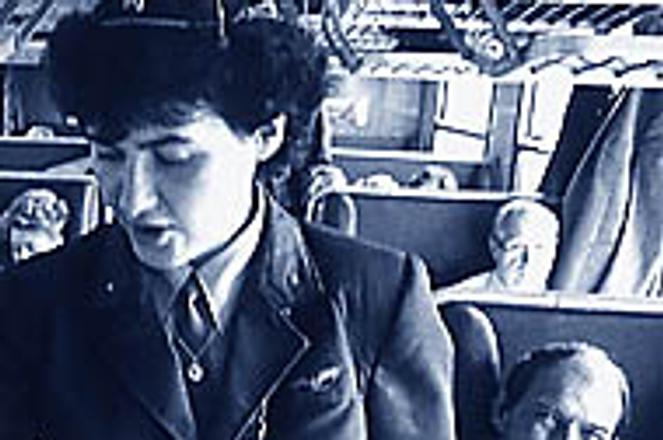She'll never ask you how your day's going, nor will she expect you to be interested in her as a person.photo: Ján Lörincz
"How are you?!" the e-mail began. And after providing its core information, the message continued, "Please don't hesitate to call should you need anything else!" concluding with, "Have a great day!!!"
For a moment, I thought I'd opened an e-mail from the United States. But then I scrolled down and saw that the message was from a Slovak PR firm I had e-mailed asking for information from a press conference. Their five-exclamation-point reply - attentive, peppy and impeccably friendly - was the sort of thing I hadn't seen much of since I'd left home.
My gut reaction was irritation (Why was this guy being so familiar?) and mild repulsion (What did this unctuous PR man want?), feelings which many Slovaks report on their first visit to America. In this case, a Slovak was communicating with me using American-style pleasantries, and I, an American two and a half years away from home, was seeing things through Slovak eyes.
This marked a 180-degree change in the person who arrived in Bratislava in 1998. At that time I was appalled by the attitude of Slovak service-providers. No smile was an insult. No greeting was an affront to my custom.
I pushed the merits of American chatter during debates with Slovaks. "Why should a waitress wish you a nice day?" they would ask. "You don't even know her." "But they mean it," I countered. "Why wouldn't they want you to have a nice day? Who doesn't want strangers to have nice days?"
As time passed I learned to live without routine friendliness. Slovaks weren't hostile or sad, I realised, they just rarely spoke unless they had something to say. I even started to enjoy the silence, though in the back of my mind I continued to regard American amicability, as I thought of it, as superior.
My attitude changed after flying back to the US for the first time, where after a year away, I was re-immersed in the omnipresent buzz of pleasantries. "Thank you, have a nice day!" "Welcome to [insert fast-food restaurant], may I take your order?" "How are you today sir?" "It's so nice to meet you!"
When my father picked me up at the airport, and before we'd had a chance to talk ourselves, he pulled into a nearby restaurant. A cheerleaderish hostess with too much red lipstick greeted us and, while showing us to our table, asked where we were from and what our plans were for the evening. The teenage waitress who took over wanted to know, "Are you two hungry?" My father made inquiries into her life, and before long the two were off and running in a conversation with no end in sight.
This was a far cry from my father's visit to Slovakia the previous summer. A Slovak friend had offered to drive me to Vienna's Schwechat airport to pick him up. As we drove back to Slovakia, my friend was (it seemed to me) oddly silent.
"I'm giving you privacy," he explained at a gas station. "You haven't seen each other in a long time. You must have a lot to talk about." You're right, I thought, we must have a lot to talk about, and how courteous of you to remember that. And how different from the behaviour of my father and I, who had felt obliged to make idle chit-chat with our driver.
American writer William Burroughs once wrote that the manner of his compatriots depressed him because it was "based on the premise that for social purposes, people are more or less equal and interchangeable." I had this thought in my head during that first visit home. From the cheerleaderish hostess to the salutation-shouting neighbours, people seemed to be talking with whomever was nearest, yet saying very little. I was asked how I was, but rarely pressed for details. I had a year of experiences to share, but few were interested. Experts at small talk, it seemed we Americans were inept at 'big talk'.
Coming back to Slovakia was like cutting out from a loud, crowded cocktail party to speak to interested friends in a quiet hall. Friends urged me to explain my visit home in detail. A neighbour who took interest in my return engaged me in a lengthy chat. I could hear myself think, and consider what I was saying. Strangers weren't exchanging pleasantries. Waiters didn't know me, I didn't know them, and neither of us were interested in doing anything about it. When I met people I didn't like, I didn't yammer on with them as if I did like them.
That was more than a year ago, and although customer service in Slovakia has continued to improve, the practice of exchanging empty niceties hasn't made much headway. So far, the three-exclamation-point e-mail from the Slovak PR firm has proven an aberration. Here's hoping it stays that way.


